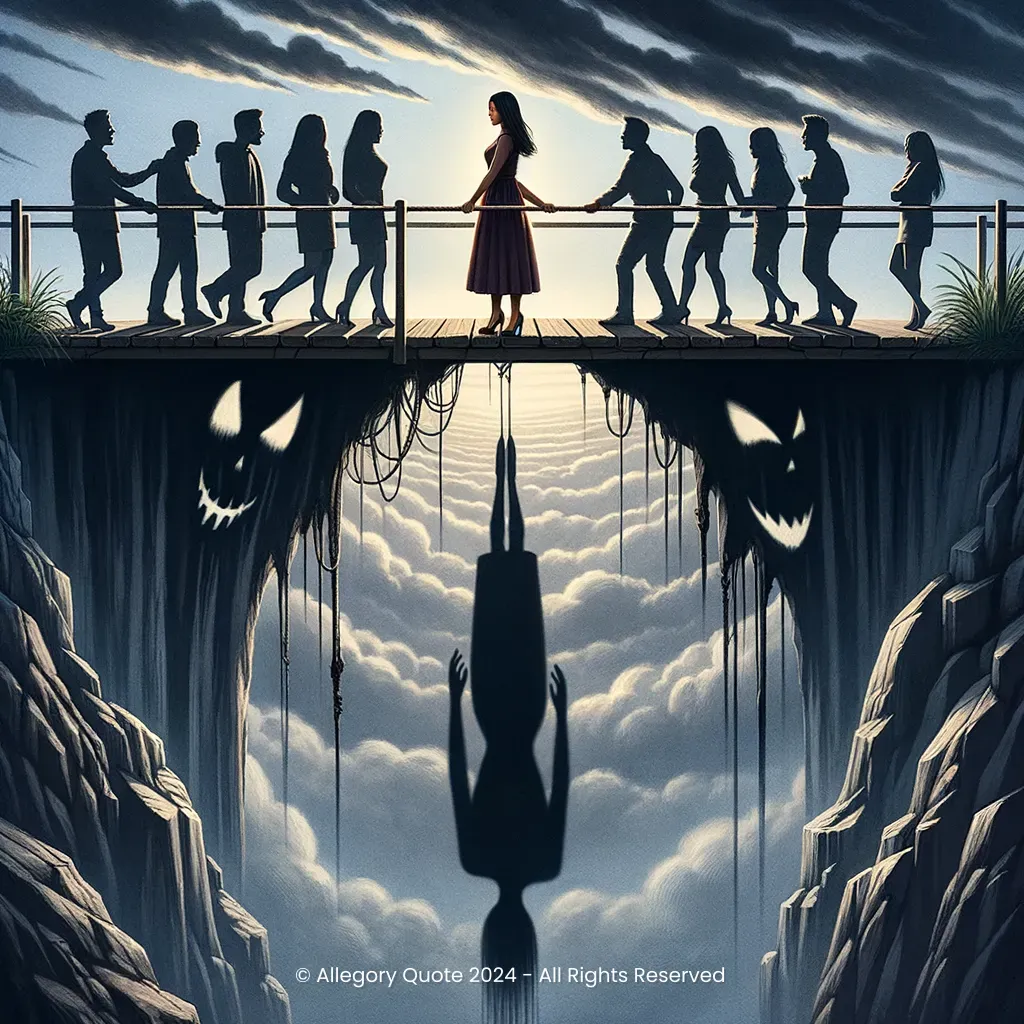”The saddest thing about betrayal is
that it never comes from your enemies“

0
0
0
0
- Meaning
- This phrase underscores a profound and deeply wounding paradox of human relationships: the most painful betrayals often come from those we are closest to, like friends, family, or loved ones, rather than our enemies. The key element of betrayal is the breach of trust, which is more pronounced and heart-wrenching when it involves someone we once trusted implicitly. Enemies, on the other hand, are expected to not have our best interests at heart, so their actions don’t carry the same emotional impact.
- Allegory
- The elements in the image, such as the bridge turning from robust to fragile, represent the transition from trust to betrayal. The shadow of friends and loved ones behind the person signifies that the most painful betrayals come from those we are closest to. The deep chasm below symbolizes the profound emotional impact of betrayal. The juxtaposition of clear skies and storm clouds highlights the sudden and often unexpected nature of betrayal, contrasting the warmth of trust with the coldness of deceit.
- Applicability
- The understanding of this phrase can lead to a more cautious approach to trust and relationships. It encourages individuals to be mindful of whom they place their trust in and to be aware of the potential for betrayal from those closest to them. In personal life, it can foster resilience and prompt one to develop a balanced approach to trust, blending openness with discernment.
- Impact
- This phrase has had a notable impact on how people understand and discuss the complexities of trust and relationships. It often appears in discussions around the psychology of trust, betrayal trauma, and relationship dynamics. It has found its place in self-help literature, movies, songs, and everyday conversations, reflecting its resonance with the human experience.
- Historical Context
- This sentiment can be traced back through centuries of literature and human experience. Instances of such ideas can be found in historical texts, literature like Shakespeare’s plays (consider "Et tu, Brute?" from Julius Caesar), and various cultural teachings.
- Criticisms
- Criticisms of this phrase might argue that it can foster distrust and cynicism, especially if taken to an extreme. Some might challenge its blanket assertion, as it doesn’t account for the complexities of human emotions and relationships. It can also be seen as somewhat deterministic, suggesting that betrayal is inevitable from those close to us.
- Variations
- This concept is universally recognized and has variations across different cultures reflecting the same sentiment. For example, Eastern proverbs might frame it in a more poetic manner, but the underlying message about the pain of close betrayals remains consistent.
-

Appearances can be deceiving.
-

This too shall pass.
-

Blood is thicker than water, but it can still be contaminated.
-

Keep your friends close, and your enemies closer.
-

All that glitters is not gold.
-

Know thyself.
-

Living well is the best revenge.
-

Desperate times call for desperate measures.
No Comments